The Week In Reverse: Geely's EV brand Geometry, Lumax-JOPP JV, Citroen C5 Aircross' 4-star Euro NCAP rating, Hyundai Venue teaser, Toyota turns 20 in India, Carlos Tavares 'open' to acquiring JLR
April is turning out to a rather newsy month. The first week was full of headlining stuff but the second week was no less. Read all about it here.
Which premium SUV, which is also sold in India, is seeing so much demand that its manufacturer is setting up a plant in China simply to local customers? Which leading Chinese carmaker has launched a pure electric brand called 'Geometry'? Which Indian Tier 1 supplier has tied up with Germany's JOPP to make design, develop and manufacture gear shift towers, AMT kits, all gear sensors and forks for cars? Which two SUVs, one already sold in India and one to be launched as a flagship product from the latest OEM entry into India, came out with flying colours in recent Euro NCAP crash tests? The answers to these queries and more were some of the many news-making events in the second week of April.
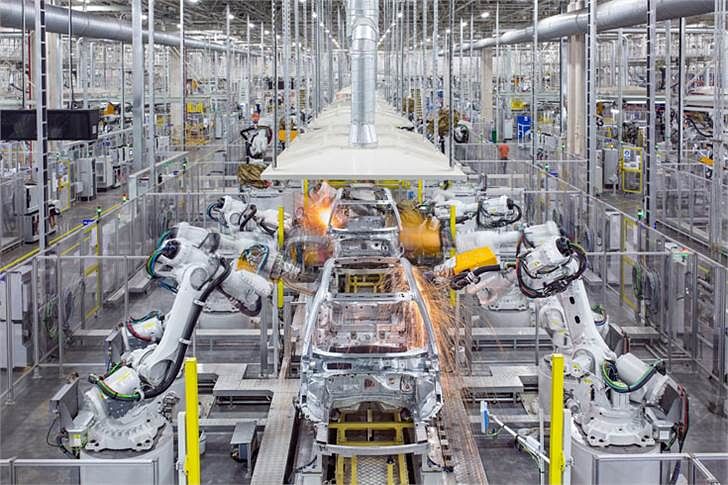
Given robust demand, carmakers will go places to cater to customers. That's just what Volvo Cars has done. Surging demand for the XC40 SUV, launched in end-2017 and the first ever Volvo to win the European Car of the Year, sees the company commence local production in China. XC40s for the Chinese market are built at a manufacturing plant in Luqiao, south of Shanghai, which is owned by Geely and operated by Volvo Cars. “Demand for the XC40 has exceeded our most optimistic expectations,” said Håkan Samuelsson, president and chief executive for Volvo Cars. “Building the XC40 in Luqiao creates extra capacity, adds flexibility to our global manufacturing network and is a clear proofpoint of our strategy to ‘build where you sell’.”
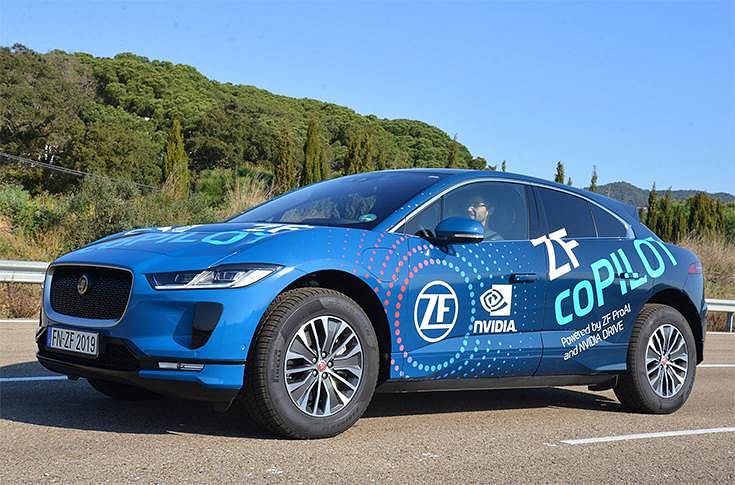
On April 12, ZF announced the debut of the ZF coPILOT, an intelligent ADAS, which it says enables enhanced safety and driving comfort. The system leverages the power of AI and is equipped with a comprehensive sensor set, which enables vehicles to perform various automated driving functions, especially on freeways. In addition, the ZF coPILOT can be operated with voice commands and is designed to recognise traffic conditions, sense vehicle handling and monitor the driver, helping to pre-empt hazardous situations through active control intervention. The technology is powered by the ZF ProAI central computer and the Nvidia Drive platform, and is designed for volume production which will be available from 2021.
The same day saw domestic component major Lumax Auto Technologies announce a new joint venture with JOPP of Germany for manufacture of shift towers and integrated sensor systems for the Indian auto industry.
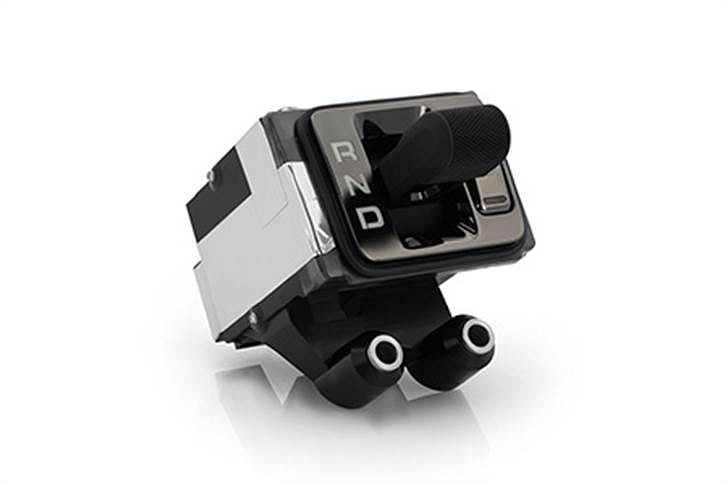 The JV will engage in designing, development and production of gear shift towers, automated manual transmission (AMT) kits, all gear sensor (AGS) and forks to start with. Commercial production is expected to begin in Q4 FY2020 from an existing Lumax facility in Manesar, Haryana, and the partners will invest over Rs 75 crore over a 5-year period.
The JV will engage in designing, development and production of gear shift towers, automated manual transmission (AMT) kits, all gear sensor (AGS) and forks to start with. Commercial production is expected to begin in Q4 FY2020 from an existing Lumax facility in Manesar, Haryana, and the partners will invest over Rs 75 crore over a 5-year period.

On April 11, Chinese automaker Geely launched its first pure electric brand called Geometry. Its first model called Geometry A comes in two versions, standard range and long range, in a total of six different configurations. The green sedan develops maximum power of 120kW and maximum torque of 250 and goes from zero to 100kph in 8.8 seconds. Using Fast Charge, Geometry A can charge from 30 percent to 80 percent in 30 minutes. By 2025, Geometry will launch 10 pure electric models in multiple segments including sedans, SUVs, crossovers, and MPVs.
In what could be a tech breakthrough, researchers at Chalmers University of Technology, Sweden claim to have developed the world's fastest hydrogen sensor. The discovery is an optical nanosensor encapsulated in a plastic material. The sensor works based on an optical phenomenon – a plasmon – which occurs when metal nanoparticles are illuminated and capture visible light. The sensor simply changes colour when the amount of hydrogen in the environment changes.
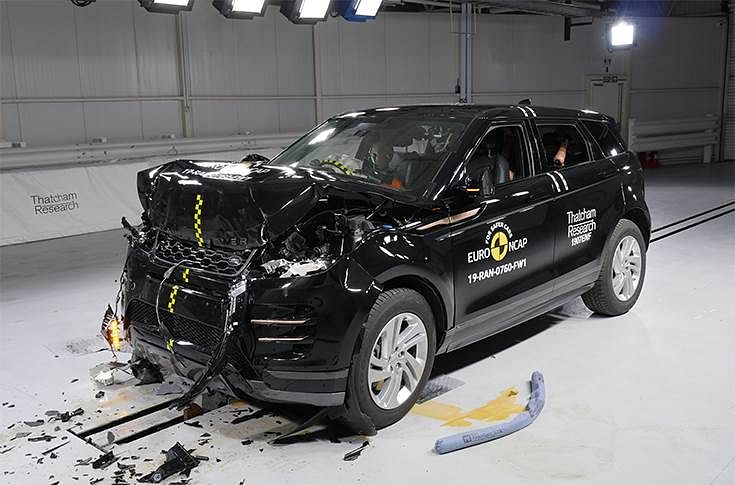
April 11 also saw Euro NCAP release the crash test results of two SUVs -- the Range Rover Evoque and the 2019 Citroen C5 Aircross. The new Range Rover Evoque has been awarded the maximum five-star safety rating in the latest round of tests. The British-built SUV, which moved into its second generation earlier this year, achieved significantly higher ratings for adult and child occupant protection than the original model received in 2011, even against a tougher testing regime.
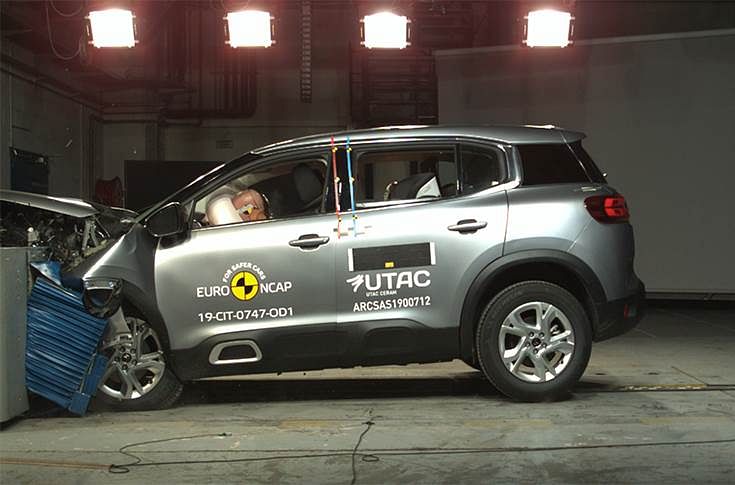
The other SUV is the Citroen C5 Aircross, which is the PSA Group's and Citroen’s first product to be manufactured in their recently announced India project by end-2020. It received a strong 4-star crash test rating. Our reports have the full results as well as videos of the crash tests.
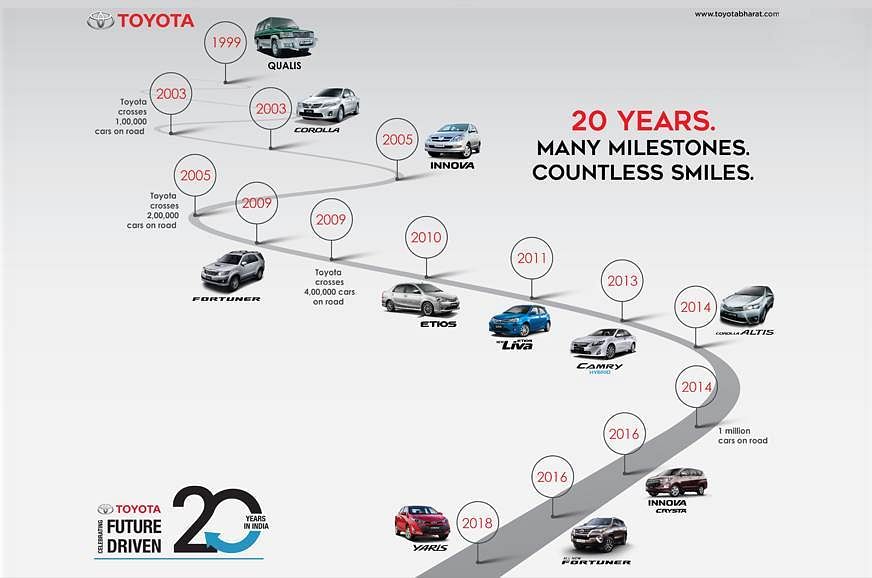
Last week also saw Toyota complete 20 years in India. Operating in India through its joint venture with the Kirloskar Group, the carmaker has sold over a million cars in India to date. A journey which began with the unbreakable Qualis today continues with the Innova Crysta, Fortuner, Corolla Altis, Camry Hybrid, Yaris, Etios, Etios Liva, Etios Cross, Prado, Land Cruiser and Prius.
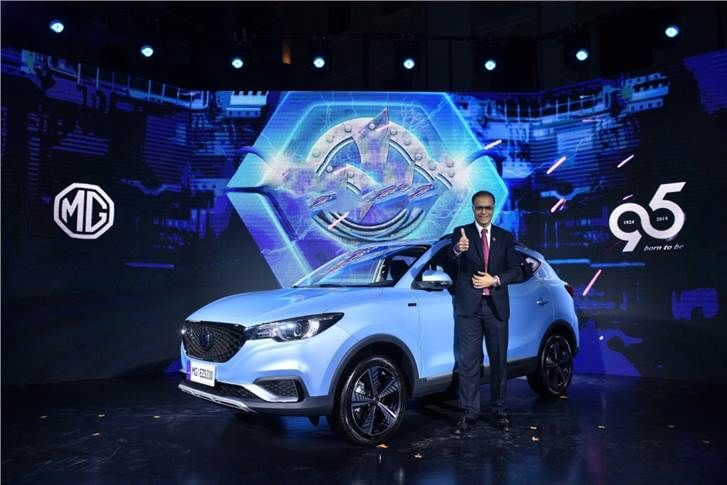
April 10 saw MG unveil its global pure electric SUV – the MG eZS. To be introduced in India by December 2019, the MG eZS will be one of the first global pure electric SUVs in the country. Subsequently, it will be launched in other markets like the UK, Germany, Australia, Thailand and the Middle East. “With a modern design and advanced technology, the MG eZS will herald a new chapter in environment-friendly solutions in India. While the petrol version of the MG ZS had already become a popular choice globally, we are confident that its zero-emissions electric equivalent will bring accessible electric motoring to the customers in India upon its launch by the end of this year,” said Rajeev Chaba, president and MD, MG Motor India (pictured above).
Automobile dealers have their ears to the ground and know the pulse of the consumer. So, when the Federation of Automobile Dealers Associations (FADA) said it has seen the green shoots of recovery for India Auto Inc, it is reason for cheer. According to Ashish Harsharaj Kale, president, FADA said: "I am happy to share that at the retail front, the Indian auto sector has managed to close FY2019 on a positive note. We at FADA believe that the worst for auto industry is now behind us and expect plateauing of the declining demand and expect sales to stabilise in their current normal range for the next 4-6 weeks till India’s biggest democratic festival 'the elections', conclude and we head towards the onset of the monsoon. FADA would like to mention that the inquiry de-growth has not been as much as actual retail sales de-growth and although the current customer sentiment is negative-to-neutral for purchase decision, consumers’ interest towards automobiles still remains reasonably robust."
The beginning of a new quarter is when global OEMs announce their sales numbers for the previous quarter. So when Mercedes-Benz revealed at 2pm that it had sold 560,873 units globally in Q1 2019 (-5.6%), it was a matter of a few hours before Mercedes-Benz India, the luxury car market leader, too released its sales data. At 3,885 units in the January-March 2019 period, the carmaker was down 14.7 percent year on year (January-March 2018: 4,556). The first three months of 2019 have seen the luxury car industry in India face strong macro-economic headwinds in the form of rising interest rates, inflationary hikes, liquidity crunch, rising import costs.
This also meant that its rival BMW India is drawing closer to the market leader. BMW Group India reported its highest-ever first quarter sales (January-March 2019). All three brands – BMW, Mini and BMW Motorrad – have been on a strong growth track from the start of the year. In Q1 2019, BMW Group India delivered 2,982 cars (BMW + Mini) registering YoY growth of 19 percent as compared to Q1 2018. BMW India sold 2,822 cars (+19%) and Mini India sold 160 cars (+18%).
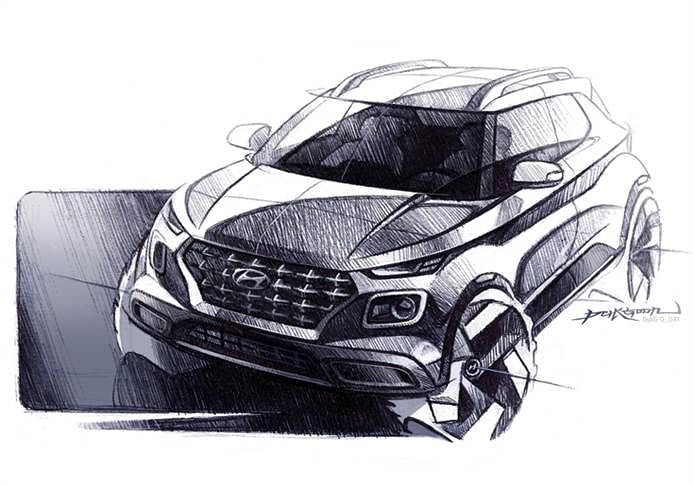 The newsy news of the week came on Tuesday, when Hyundai Motor released the first official design sketches of the Venue SUV, which is set to have a simultaneous global reveal at the New York Auto Show on April 17 as well as in India. The sketches help give a clearer idea of the new Hyundai. The Hyundai Venue will come with the option of a 1.4-litre petrol and diesel engines as well as a 1.0-litre turbo-petrol unit that will come with a dual-clutch gearbox. The Hyundai Venue will go on sale in May 2019 in India. While the final pricing will only be known at launch, the Venue is unlikely to come cheap. Expect pricing in the range of Rs 800,000-12 lakh (estimated, ex-showroom).
The newsy news of the week came on Tuesday, when Hyundai Motor released the first official design sketches of the Venue SUV, which is set to have a simultaneous global reveal at the New York Auto Show on April 17 as well as in India. The sketches help give a clearer idea of the new Hyundai. The Hyundai Venue will come with the option of a 1.4-litre petrol and diesel engines as well as a 1.0-litre turbo-petrol unit that will come with a dual-clutch gearbox. The Hyundai Venue will go on sale in May 2019 in India. While the final pricing will only be known at launch, the Venue is unlikely to come cheap. Expect pricing in the range of Rs 800,000-12 lakh (estimated, ex-showroom).
Last Monday was when Autocar Professional revealed that India's first retrofitted EV was registered at Telangana RTO. E-Trio, the company which does the retrofitting, has the capacity of converting 1,000 cars a month. E-Trio also revealed that it is ready to sell kits and retrofitted cars in the market. While the retrofitted kits have been sourced from China and Korea, the ‘Controller’ (for the kit) is indigenously developed.
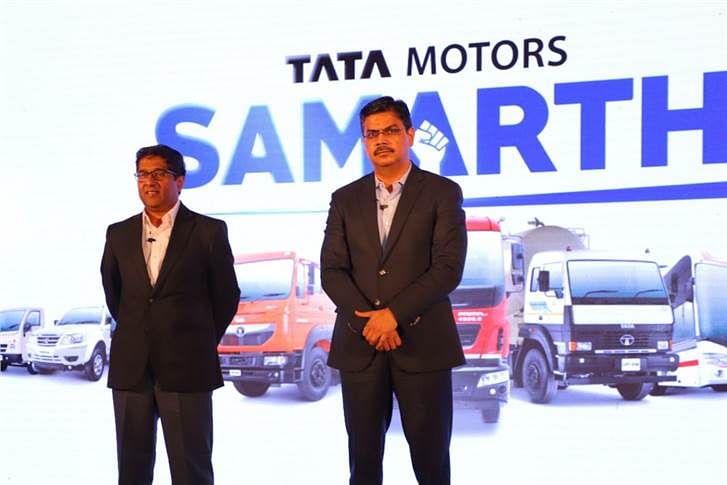
Tata Motors launched Samarth, a first-of-its-kind program to address four critical areas for CV drivers’ well-being, which are presently identified as Swasthya (Wellness program); Sampatti (finance program); Siksha (education program) along with Surakshit Samarth (driver on wheel insurance). The program will be launched across the country India and will attempt to reach out to more than 500,000 drivers every year.
April 8 also saw apex industry body SIAM announce industry sales for March 2019 and importantly for FY2019. While the industry crossed the 25 million sales mark for the first time, numbers across all segments, other than CVs, were subdued and in low single-digit growth rates. To find out the status of segment-wise market shares of various OEMs, click here for two-wheelers, scooters, utility vehicles, buses and made-in-India vehicle exports.
Ford India has hung on to its title as India’s leading passenger vehicle exporter in FY2019 by a mere 696 units. It may be recollected that the American carmaker took the crown from the longstanding export leader Hyundai Motor India in FY2018. At halfway stage in FY2019, Hyundai had led Ford India by a significant margin but clearly the pitched battle between the two carmakers to ship their made-in-India cars to overseas markets will continue in FY2020.
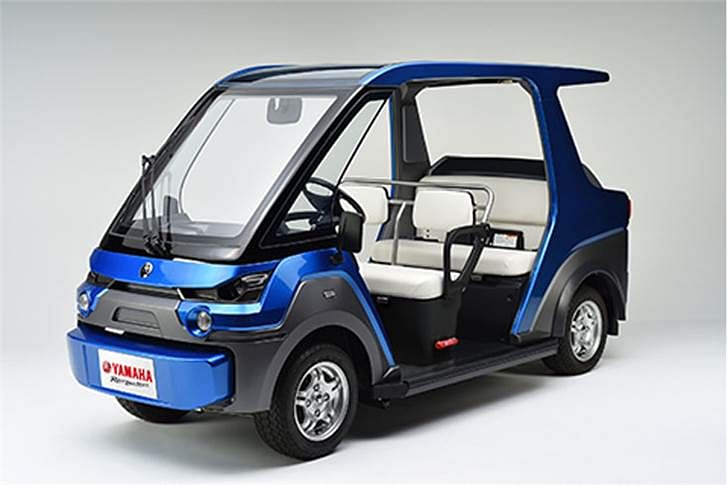
Yamaha Motor Co announced that testing on public roads of its YG-M FC prototype fuel cell vehicle will begin on April 18. Aiming to deliver a seamless vehicle sharing service, the trial will take place on a city-center course in Wajima City, Ishikawa Prefecture, including scheduled routes as part of the city's ‘WA-MO’ new transport system. The YG-M FC prototype fuel cell vehicle, which uses compressed hydrogen as its fuel can seat four occupants. In terms of size, it is 337cm long, 134cm wide and 171cm tall, with an overall weight of 640kg.
But the news that broke on Monday morning and got everyone in the automotive industry buzzing about it was PSA Group chairman Carlos Tavares saying that he is 'open' to an acquisition or merger with Jaguar Land Rover.
RELATED ARTICLES
Autoliv Plans JV for Advanced Safety Electronics With China’s HSAE
The new joint venture, which is to be located strategically near Shanghai and close to several existing Autoliv sites in...
JLR to Restart Production Over a Month After September Hacking
Manufacturing operations at the Tata Group-owned British luxury car and SUV manufacturer were shut down following a cybe...
BYD UK Sales Jump 880% in September to 11,271 units
Sales record sets the UK apart as the largest international market for BYD outside of China for the first time. The Seal...






 12 Apr 2019
12 Apr 2019
 15486 Views
15486 Views






























 Ajit Dalvi
Ajit Dalvi




